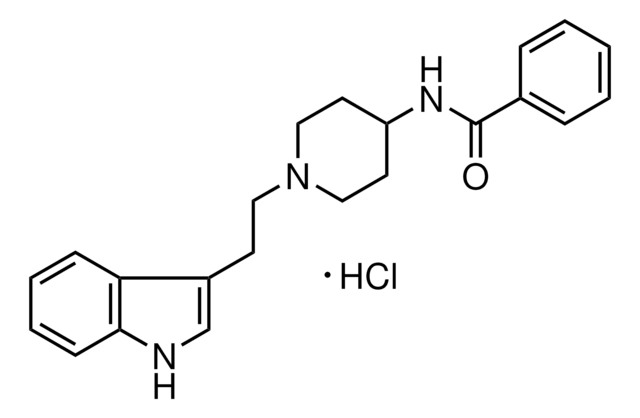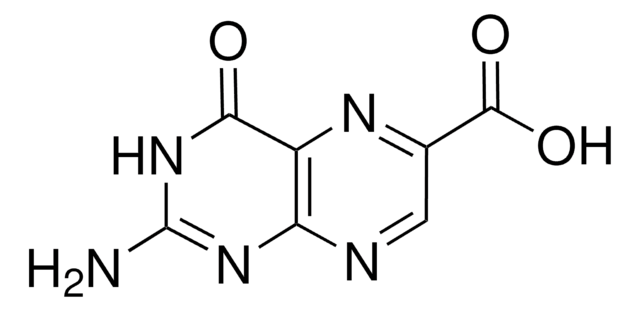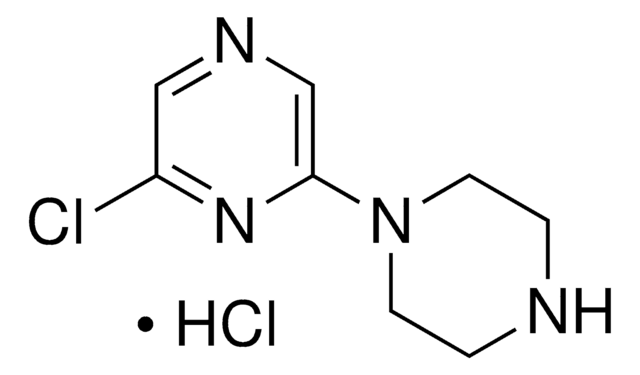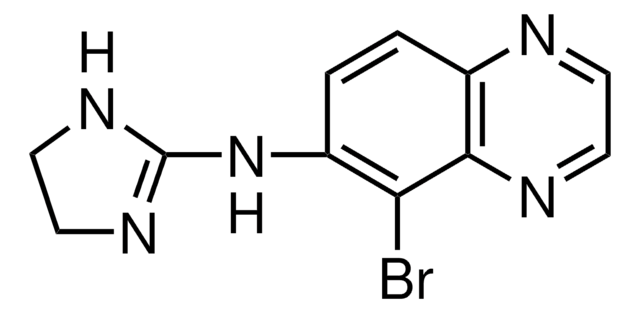SML1070
SR-58611A
≥98% (HPLC)
Synonym(s):
Amibegron, [[(7S)-7-[[(2R)-2-(3-Chlorophenyl)-2-hydroxyethyl]amino]-5,6,7,8-tetrahydro-2-naphthalenyl]oxy acetic acid ethyl ester hydrochloride
About This Item
Recommended Products
Quality Level
Assay
≥98% (HPLC)
form
powder
optical activity
[α]/D -75 to -95°, c = 0.5 in methanol
color
white to beige
solubility
DMSO: 20 mg/mL, clear
storage temp.
−20°C
SMILES string
ClC1=CC([C@@H](O)CN[C@@H]2CC(C=C(OCC(OCC)=O)C=C3)=C3CC2)=CC=C1.Cl
InChI
1S/C22H26ClNO4.ClH/c1-2-27-22(26)14-28-20-9-7-15-6-8-19(11-17(15)12-20)24-13-21(25)16-4-3-5-18(23)10-16;/h3-5,7,9-10,12,19,21,24-25H,2,6,8,11,13-14H2,1H3;1H/t19-,21-;/m0./s1
InChI key
NQIZCDQCNYCVAS-RQBPZYBGSA-N
Gene Information
human ... ADRB3(155)
Biochem/physiol Actions
Features and Benefits
Signal Word
Warning
Hazard Statements
Precautionary Statements
Hazard Classifications
Aquatic Acute 1 - Aquatic Chronic 1
Storage Class Code
11 - Combustible Solids
WGK
WGK 3
Flash Point(F)
Not applicable
Flash Point(C)
Not applicable
Choose from one of the most recent versions:
Certificates of Analysis (COA)
Don't see the Right Version?
If you require a particular version, you can look up a specific certificate by the Lot or Batch number.
Already Own This Product?
Find documentation for the products that you have recently purchased in the Document Library.
Articles
DISCOVER Bioactive Small Molecules for Neuroscience
DISCOVER Bioactive Small Molecules for Neuroscience
DISCOVER Bioactive Small Molecules for Neuroscience
DISCOVER Bioactive Small Molecules for Neuroscience
Our team of scientists has experience in all areas of research including Life Science, Material Science, Chemical Synthesis, Chromatography, Analytical and many others.
Contact Technical Service








